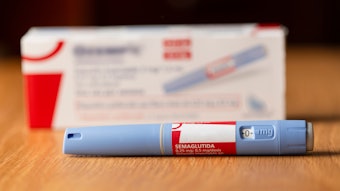The National Rosacea Society (NRS) has announced funding for three new studies, in addition to continuing support for two ongoing studies, as part of its research grants program. The program’s goal is to increase knowledge and understanding of the causes and other key aspects of rosacea that may lead to improvements in its management, prevention or potential cure.
Luis Garza, MD, PhD, associate professor of dermatology at Johns Hopkins University, and colleagues were awarded $25,000 to study epigenetic lesions in rosacea. They posit that this process may be responsible for why rosacea persists even though keratinocytes slough off and are replaced approximately every two months.
Wenqing Li, PhD, assistant professor of dermatology at Brown University, was awarded $25,000 to clarify how hormone use and hormone levels associated with menopause and during pregnancy may affect the risk of developing rosacea. The study will use data from the well-known Nurses’ Health Study II, an ongoing prospective cohort with biennially updated questionnaires on the medical history of 116,000 nurses since 1989, including more than 6,000 women diagnosed with rosacea.
Anna Di Nardo, MD, PhD, associate professor of dermatology at the University of California San Diego, and colleagues were awarded $25,000 to continue their investigation to determine whether the release of cathelicidin antimicrobial peptides is central to the connection between the nervous system and skin inflammation through the activation of mast cells in rosacea. In previous research, Dr. Di Nardo showed that mast cells were highly significant in the overproduction of cathelicidins.
The NRS also continued to fund studies by Gideon Smith, MD, PhD, assistant physician in dermatology at Massachusetts General Hospital and instructor at Harvard University, and colleagues, who are investigating whether individuals with rosacea may be at higher risk for other disorders involving the vascular system, such as heart disease and high cholesterol; and Lori Lee Stohl, MD, research associate in dermatology at Weill Cornell Medical School, who is examining how biochemicals released during stress may increase the number of mast cells linked to rosacea.
Researchers interested in applying for grants may obtain forms and instructions by contacting: 888.662.5874, www.rosacea.org. High priority in awarding grants is given to studies relating to rosacea’s pathogenesis, progression, mechanism of action, cell biology and potential genetic factors. Proposals relating to epidemiology, predisposition, quality of life and relationships with environmental and lifestyle factors may also be considered.











